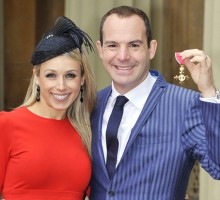Many parents wonder what the difference is between getting their children a regular account and an Internet-based account. Is it safer, easier, or perhaps just a lot more fun? It all depends on your perspective. Many banks offer these accounts for children even as they get ready to start college. A regular account may not be the way to go, depending on your child’s current age and overall health.
However, most banks are working very hard to keep their kids safe and secure. They offer a variety of options, including online banking, to make things easier for parents. Internet safety is a big concern these days, so parents are happy when they can view their child’s financial information on a screen in their own home. In addition, they have a range of security measures in place, including various levels of password protection and anti-spamming software. A nice feature that some banks provide for their customers is child safe use, which means setting up a password system that requires a child to punch in a code before using their account.
Of course, most banks don’t actually offer these accounts, so you might need to look around to find one. There are plenty of online sites that cater to children only, and many of them are operated by charities dedicated to protecting children from predators. These sites usually offer free online account choices and a number of kid-friendly features. You can usually learn more about a specific account if you visit the site, or simply ask a parent for help finding an appropriate account.
Getting an online account may seem like a scary notion to some parents, but it really isn’t any different than opening a traditional account for your child. The main thing that will be different is how accessible your child’s information is. With an online account, you won’t be able to see it on a caller ID or online chat. However, most online banks do have some way to track who is calling from an online account. That will give you a better idea of whether or not your child is dealing with someone that they should know better than they can.
One of the main reasons that banks started offering online accounts for children was simply to keep track of who their customers were. When you can’t always be there to catch who’s calling your child’s phone, it can be difficult to keep track of who’s trying to get information from your child. By giving your child an online account, you can easily find out who they’re talking to, even if you can’t be present. Many online banks will require that you provide some contact information, such as an email address, in order to get started. That way, if you ever need to find out more about an unknown number, you won’t have to worry about your child hiding their information.
Another benefit of getting kids bank accounts is that they can actually be used to build their own credit. If you don’t have any credit of your own, you may think that it would be impossible to get a regular checking or savings account for your children. However, opening up a bank account can really help you get started. In fact, you may find that you need to open accounts for your kids in order to get a better idea of just how much money you have available to you.










